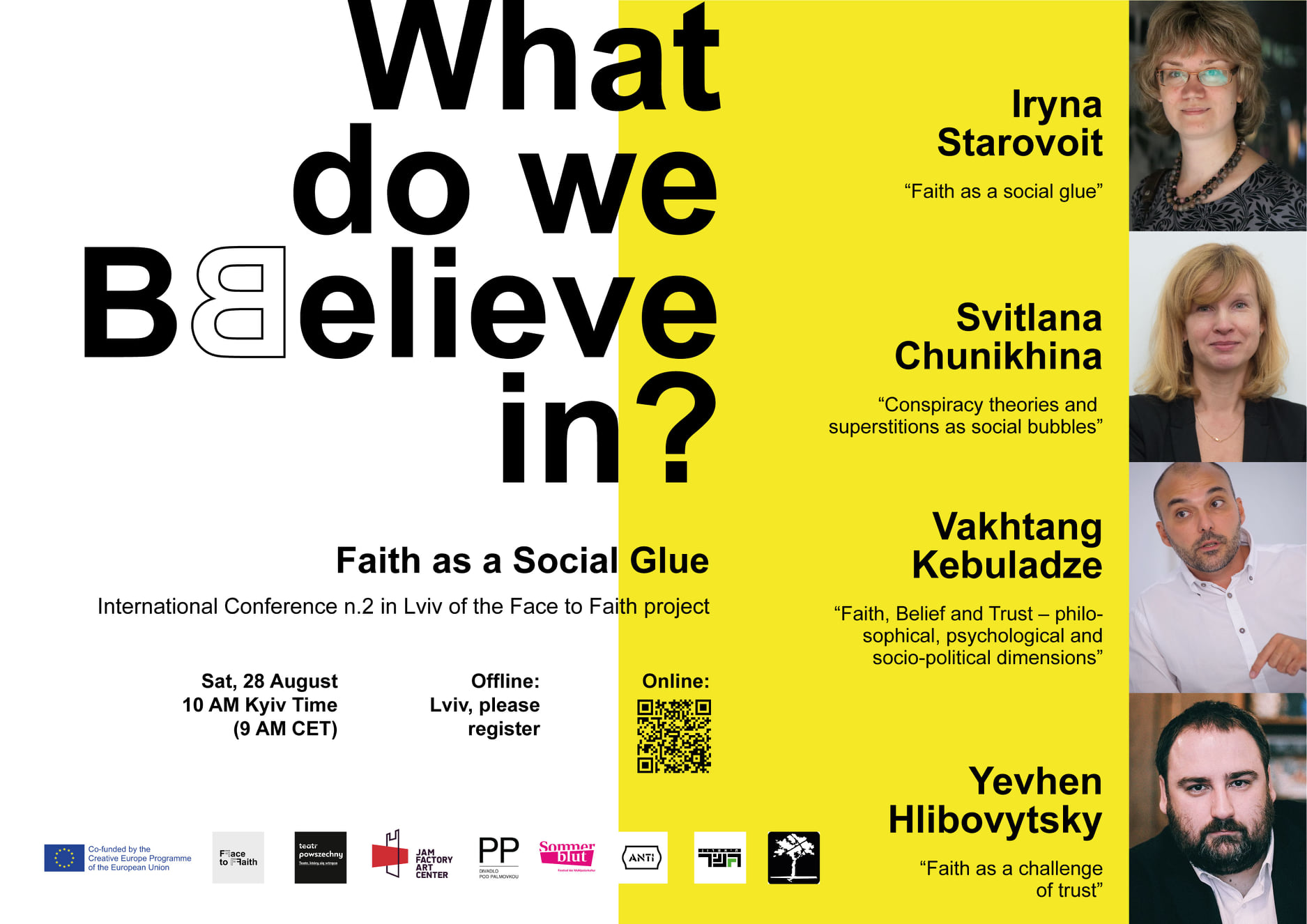At the Conferences in Lviv, we would like to ask ourselves “What do we believe in?” A special focus of the conference is our modern society and its beliefs. Metaphor - faith as a social glue tells how faith, an inevitable human feature, can connect together in communities, motivate and inspire, bring mutual trust. As well as faith can isolate communities, forming conflicts and distrust, as well be used as a tool for manipulation and abuse.
We invite thinkers, philosophers, researchers, artists, and all interested in the subject to reflect on the subject of faith and look through different lenses of faith. Some of the questions we address to speakers and visitors:
▣ What happens when beliefs in conspiracy theories define people’s decision to vote or get vaccinated?
▣ What can cause faith in politicians without critical thinking about it?
▣ Do we need to believe in a state?
▣ What is a state today and can it be a glue to citizens who have different beliefs?
We believe that asking these questions to ourselves and searching for answers could lead us to better understanding and awareness about what is faith and what its consequences are in our modern societies.
▣ You should register to participate in the offline format in Lviv, 6 Bohomoltsia Str.
https://forms.gle/S5zCLCnvGcpdvbe87
▣ If you are not able to attend, you can watch the online translation on our page.
----------
The international performance project FACE TO FAITH questions the importance of faith for our societies. In theater projects and conferences, the seven cultural institutions from the Czech Republic, Finland, Germany, Italy, Israel, Poland, and Ukraine want to question the identity-creating and political backgrounds, as well as the connecting or separating aspects of this human expression. For this purpose, artists, experts, and people of all kinds are invited to create new perspectives, tell unknown stories and uncover unsolvable conflicts.
We thank the European Union’s Creative Europe Program for supporting the project.






